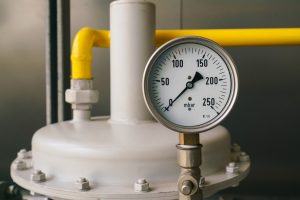 “Corrosion” or “leak” are two words you do not want to hear when talking about a boiler system. Your boiler could be the most expensive piece of equipment on your property, and rightfully so. It keeps your home cozy during even the coldest of winters, using water and piping to radiate heat. That being said, corrosion and leak problems do occur on boilers occasionally and it’s extremely advantageous to know what to do and how to handle them.
“Corrosion” or “leak” are two words you do not want to hear when talking about a boiler system. Your boiler could be the most expensive piece of equipment on your property, and rightfully so. It keeps your home cozy during even the coldest of winters, using water and piping to radiate heat. That being said, corrosion and leak problems do occur on boilers occasionally and it’s extremely advantageous to know what to do and how to handle them.
We’re going to talk about the damage that could potentially occur from these problems with a boiler. Knowing what could happen and the extent to which you’ll be paying to repair the damage that’s done could make all the difference when the time comes.
“How Do Boilers Corrode?”
That’s a good question, but it’s an integral question we must answer before we get into what to do when corrosion takes place. Boilers corrode because they are frequently exposed to water for years, decades even, on end. This exposure to water at varying temperatures from cold to boiling hot, causes expansion and contraction that will eventually weaken the pipes, tank, and anything else in contact with water, over time.
Boiler Leaks Are Next
One of the causes of a boiler leak is corrosion because the weakened pipes or tank can eventually spring a leak. Failing to address obvious boiler corrosion could lead pretty quickly into an upcoming leak. There are many other causes for boiler leaks as well, though.
- Faulty Pressure. Pressure valves are responsible for keeping your boiler pressure between 18 and 21 PSI. If your boiler begins to operate at a pressure that’s higher than 21 PSI, it’s going to run the risk of exploding from incredibly high pressure. This explosion process starts with leaks that help relieve that pressure.
- Faulty Temperature. There are temperature valves in your boiler that are responsible for keeping the boiler’s water temperature regulated. Water that is too hot could expand and increase the pressure in your boiler, which would lead to leaks as well.
- Faulty Seals. Your boiler is composed of many seals in or between pipes and tanks. with the pressure and constant temperature change of the water, these weak points can eventually spring leaks.
- Incorrect Installations. Sometimes boiler pipes need to be replaced with new fittings. Occasionally, these pipe fittings are installed incorrectly, which can very quickly lead to leaks. This could be a big reason to only have a professional look at your boiler system and not anyone who isn’t licensed and prepared to install pipes correctly.
If you thought boilers never sprung leaks, you’re in for a pretty nasty surprise. Although boilers are very sturdy mechanisms that can be incredibly reliable, when they do leak it can be a vicious problem to deal with. If you’re encountering constant leaking, corrosion, or any of the other problems associated with boilers, make sure you contact a professional today. These problems could cost you way more money than you’d be willing to pay, and it’s our job to keep that from happening.
Call Ambient Comfort today for expert boiler repair in Camden County!
